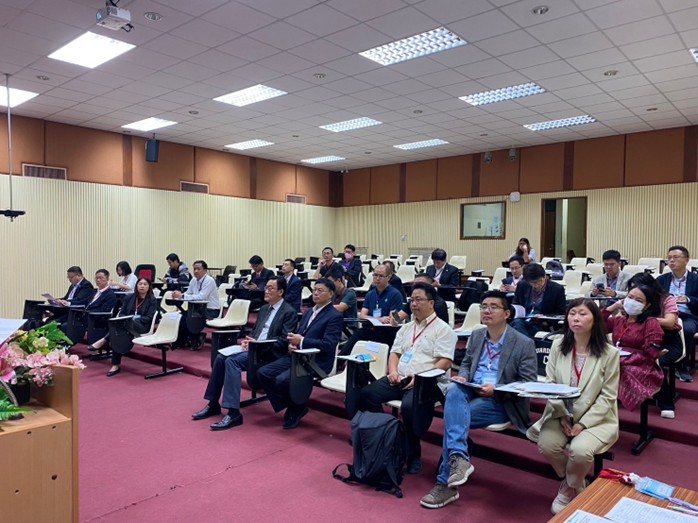On October 25th, 2024 – The AIT Belt and Road Research Center (BRRC) hosted the inaugural China-Thai Collaboration in Environmental Protection Seminar under the theme: “United Strategies for Black-Odorous Urban Rivers: Insights and Innovations from China and Thailand Perspectives,” at the Milton Bender Auditorium, AIT. The seminar aimed to address urban black-odorous river pollution, strengthen bilateral ties, and promote sustainable water pollution control practices across the region. Co-organizers included Tongji University, China Harbour Engineering Co., Ltd. (CHEC), and Supumps Environmental Technology (Changzhou) Co. Ltd.

Opening remarks by Prof. Pai-chi Li, AIT President, and Prof. Li Fengting, Deputy Dean at Tongji University, laid the groundwork for discussions on urban water quality challenges. Dr. Nuttakan Wongfun of Thailand’s Pollution Control Department (PCD) shared Thailand’s strategies to combat water pollution, including enforcement of the Water Resources Act, expanding wastewater treatment, and leveraging Big Data. Dr. Gao Qiusheng from China’s Research Academy of Environmental Sciences highlighted China’s multi-faceted approach involving pollution source control, sediment dredging, and ecological restoration, with projects like Yueya Lake and Meishe River significantly improving water quality. Dr. Pathan Bunjongpru of Bangkok’s Metropolitan Administration discussed Bangkok’s water management, noting only 13% wastewater treatment coverage with plans to reach 96% by 2040 through public-private partnerships and community engagement.



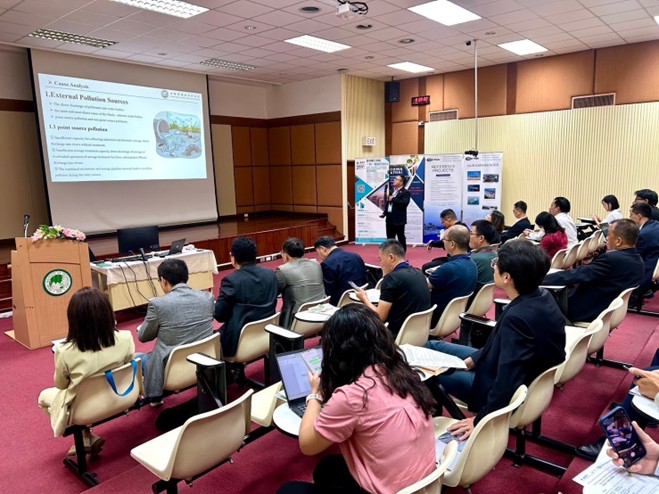
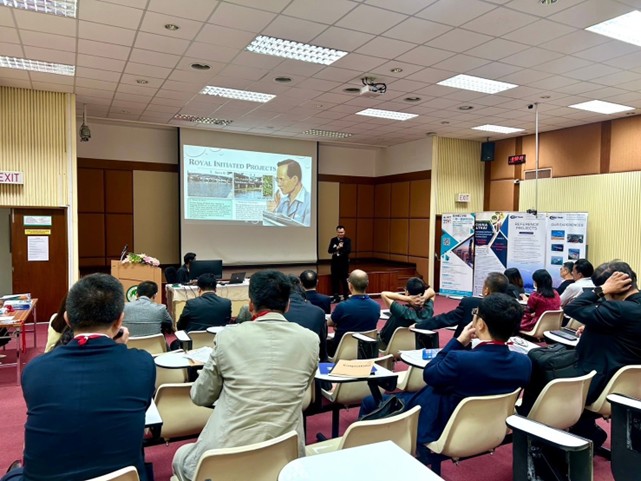
In the session on “Insights from Research and Practice in Managing Urban Black-Odorous Water Issues,” Prof. Thammarat Koottatep from AIT and Prof. Zhang Xinliang from the Shanghai Academy of Environmental Sciences presented large-scale approaches to sanitation and river rehabilitation. Prof. Thammarat emphasized Asia’s urban sanitation challenges, proposing fecal sludge management and inclusive planning for low-income areas. Prof. Zhang outlined the Suzhou Creek Rehabilitation project, which has transformed polluted waterways in Shanghai, raising water quality to Class III and revitalizing 42 kilometers of waterfront. Their insights underscored the importance of integrated, science-driven planning and community involvement in water pollution management.
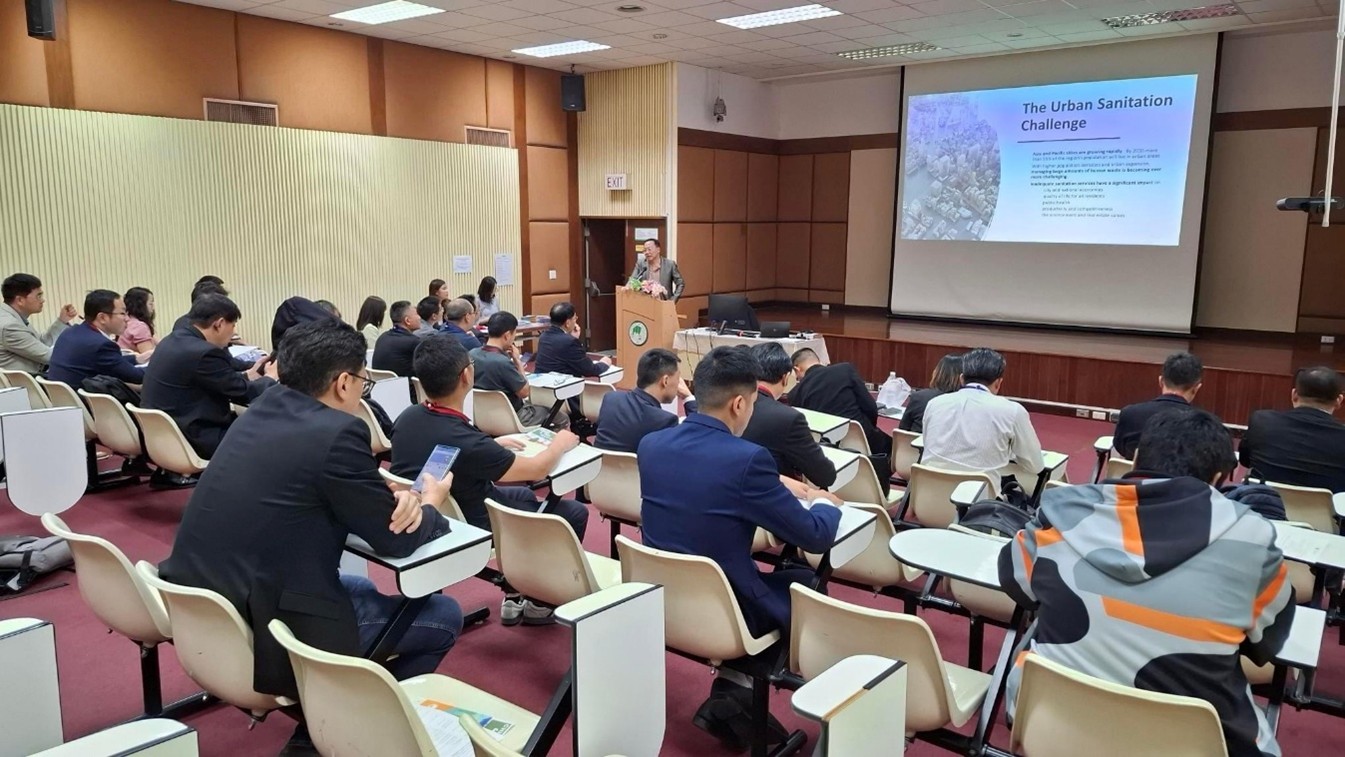
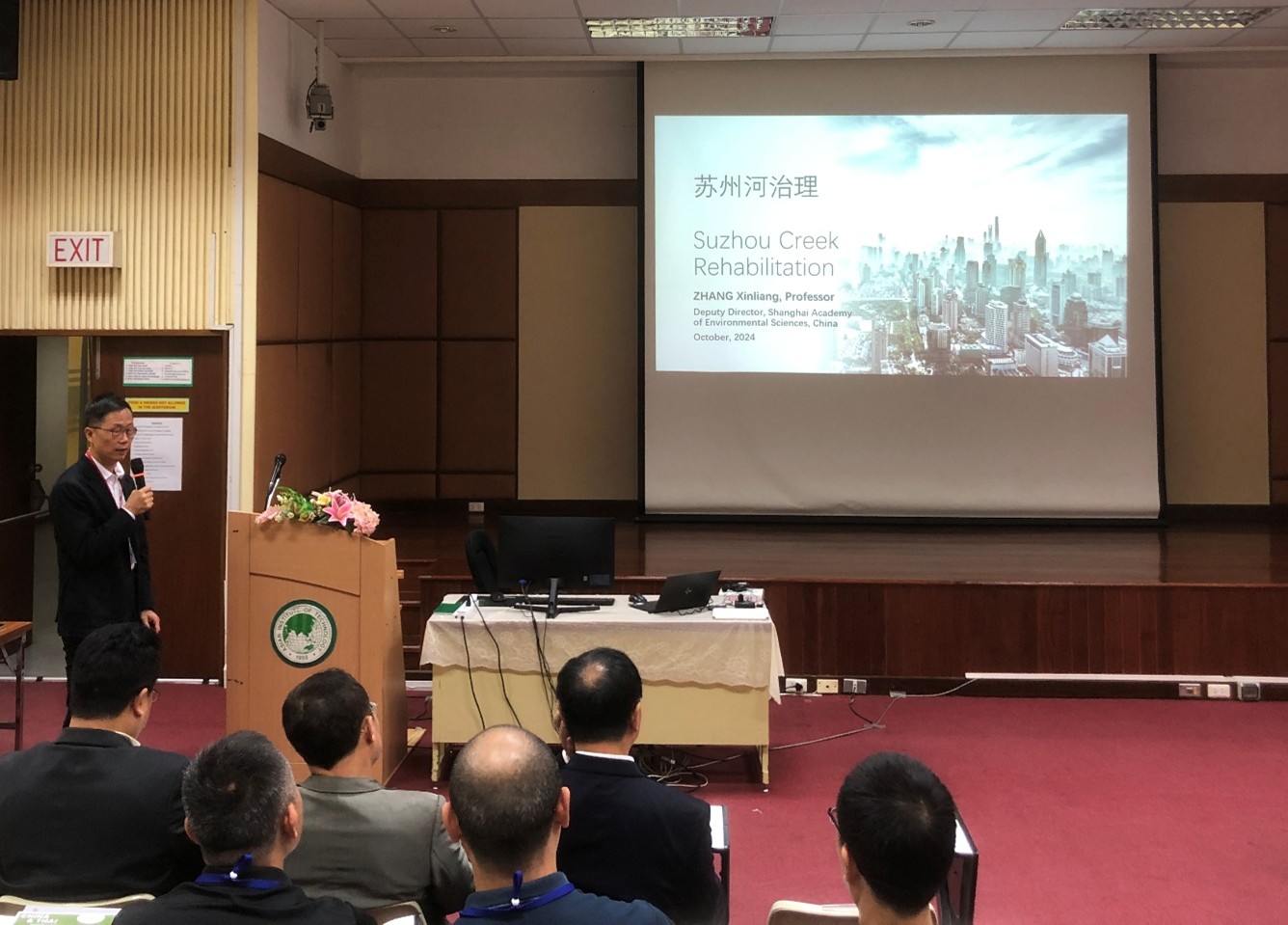
The “Technological Solutions and Industrial Opportunities” session featured Dr. Li Chuan, Dr. Chayawee Wangcharoenrung, and Dr. Shen Zheng discussing advanced remediation technologies. Dr. Li Chuan from China Harbor Engineering emphasized sewage interception and sediment dredging alongside ecological techniques like constructed wetlands. Dr. Chayawee from Thailand PCD introduced Thailand’s Treatment Efficiency Label (TEL) system, which standardizes wastewater treatment for domestic use and encourages innovation. Dr. Shen from Tongji University presented remediation strategies using magnetic separation and biofilm technologies, demonstrating transformations of polluted rivers in Chinese cities. The session highlighted a shared vision: leveraging technology, regulation, and ecological engineering to advance urban water management.
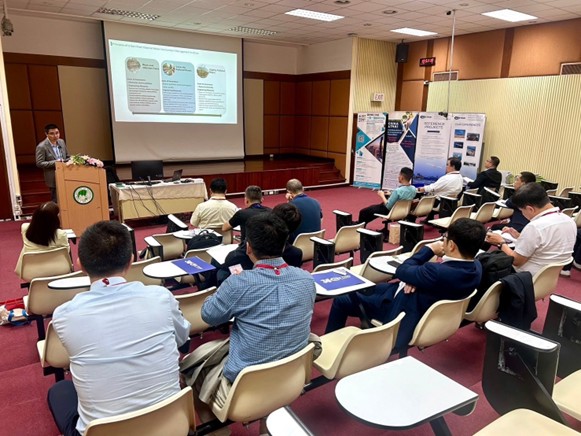
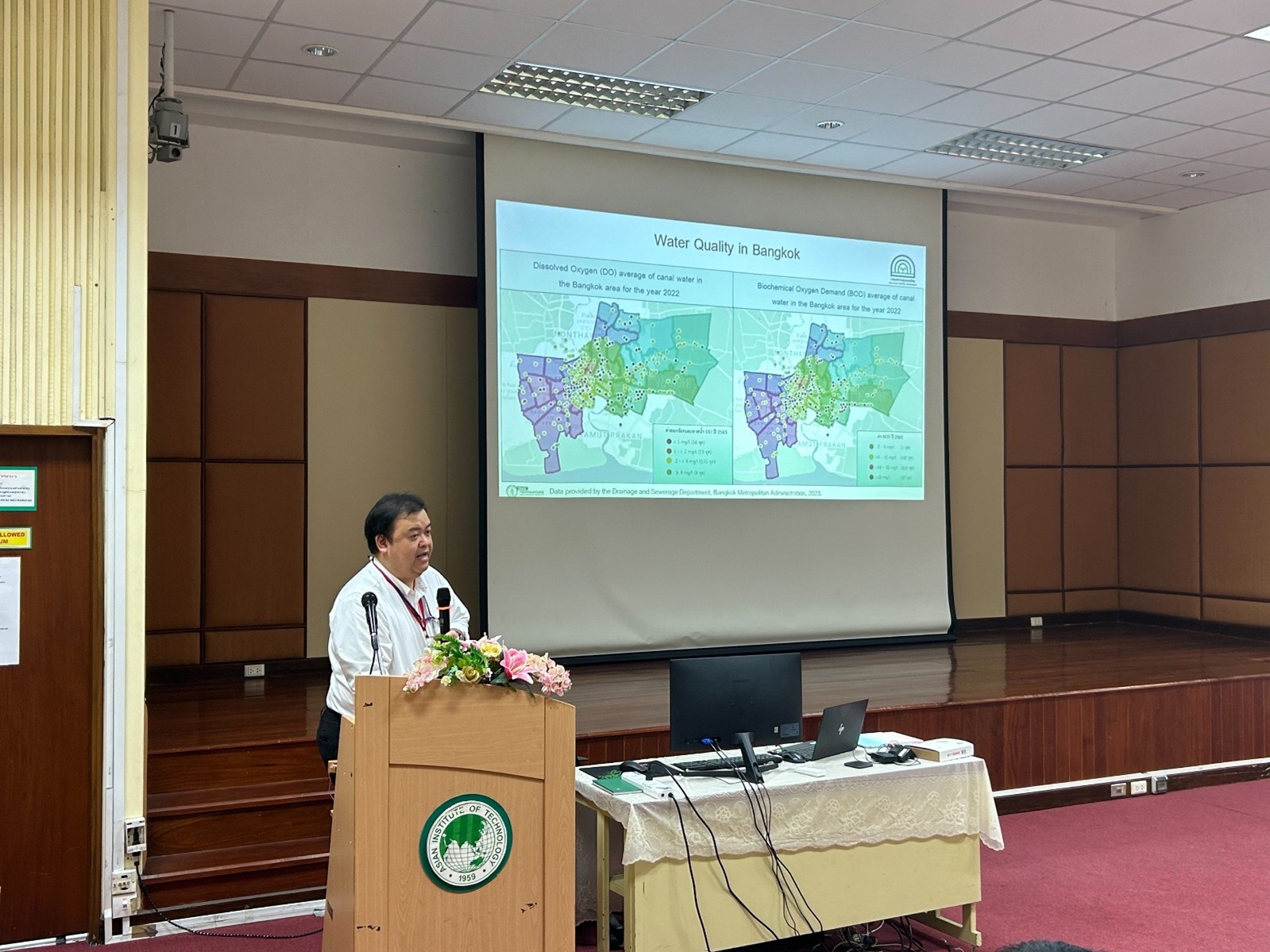
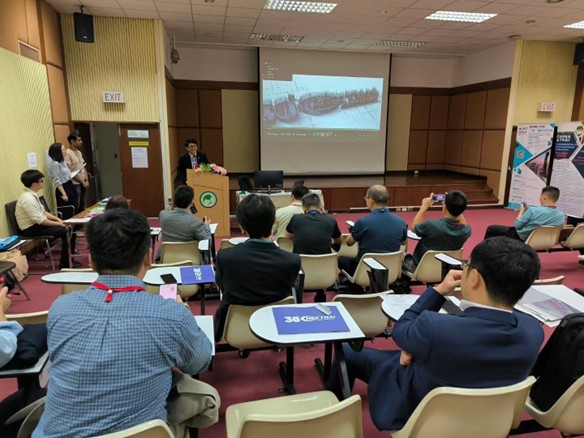
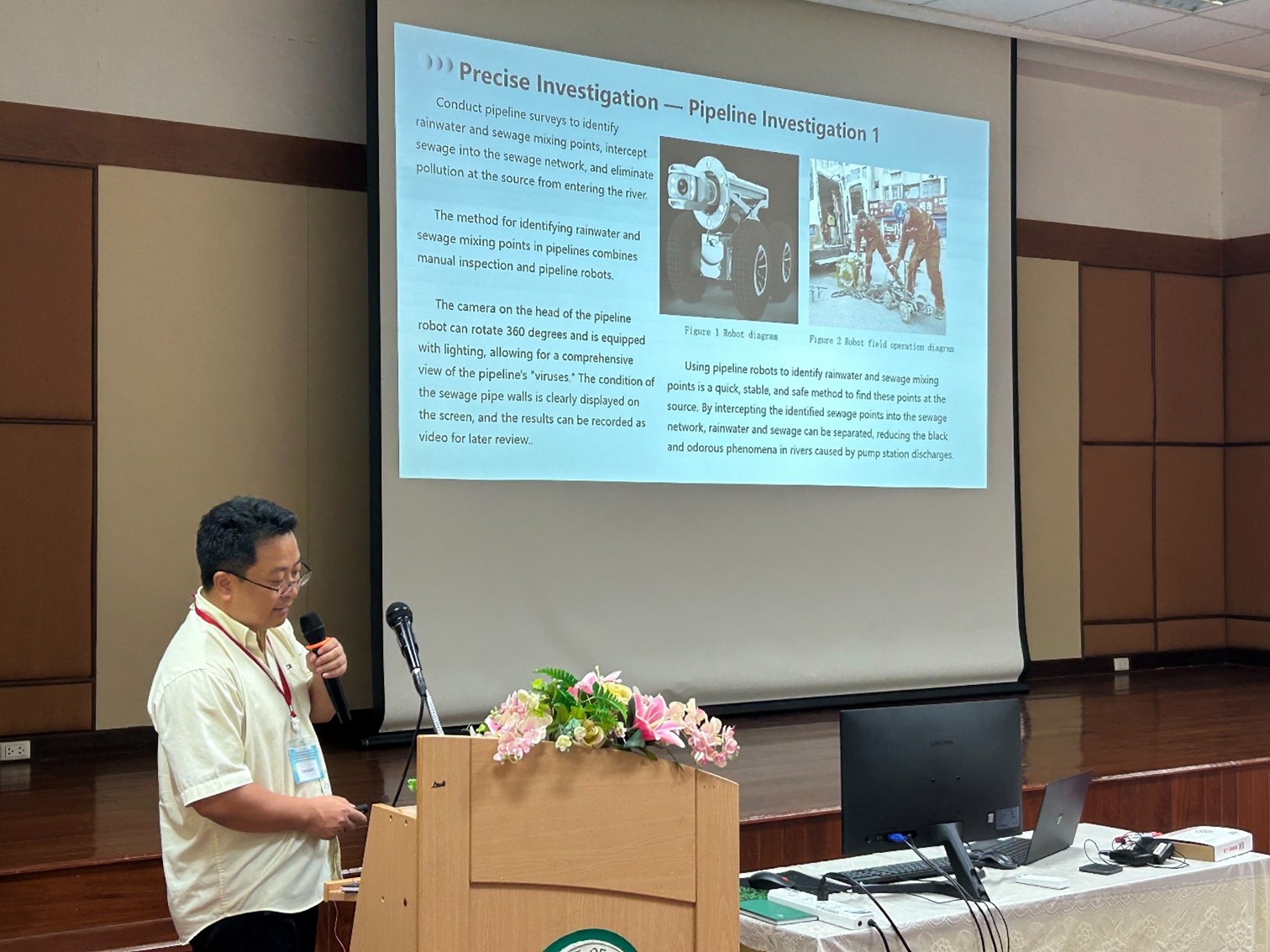
Moderated by Dr. Wenchao Xue, Director of AIT BRRC, a panel discussion explored cross-border strategies for black-odorous river remediation. Dr. Gao emphasized the urgency of addressing this pollution swiftly in both nations. Dr. Pathan highlighted seasonal variations in water levels as a challenge, drawing insights from similar efforts in Suzhou. Dr. Shen underscored the need for Thailand to establish policies before selecting appropriate technologies. On industrial cooperation, Dr. Li proposed government investment and BOT or PPP models, noting CHEC’s potential expertise and funding support. Dr. Chayawee concluded by stressing the impact of demonstration projects, suggesting that exposure to China’s environmental improvements could inspire public confidence and commitment in Thailand.
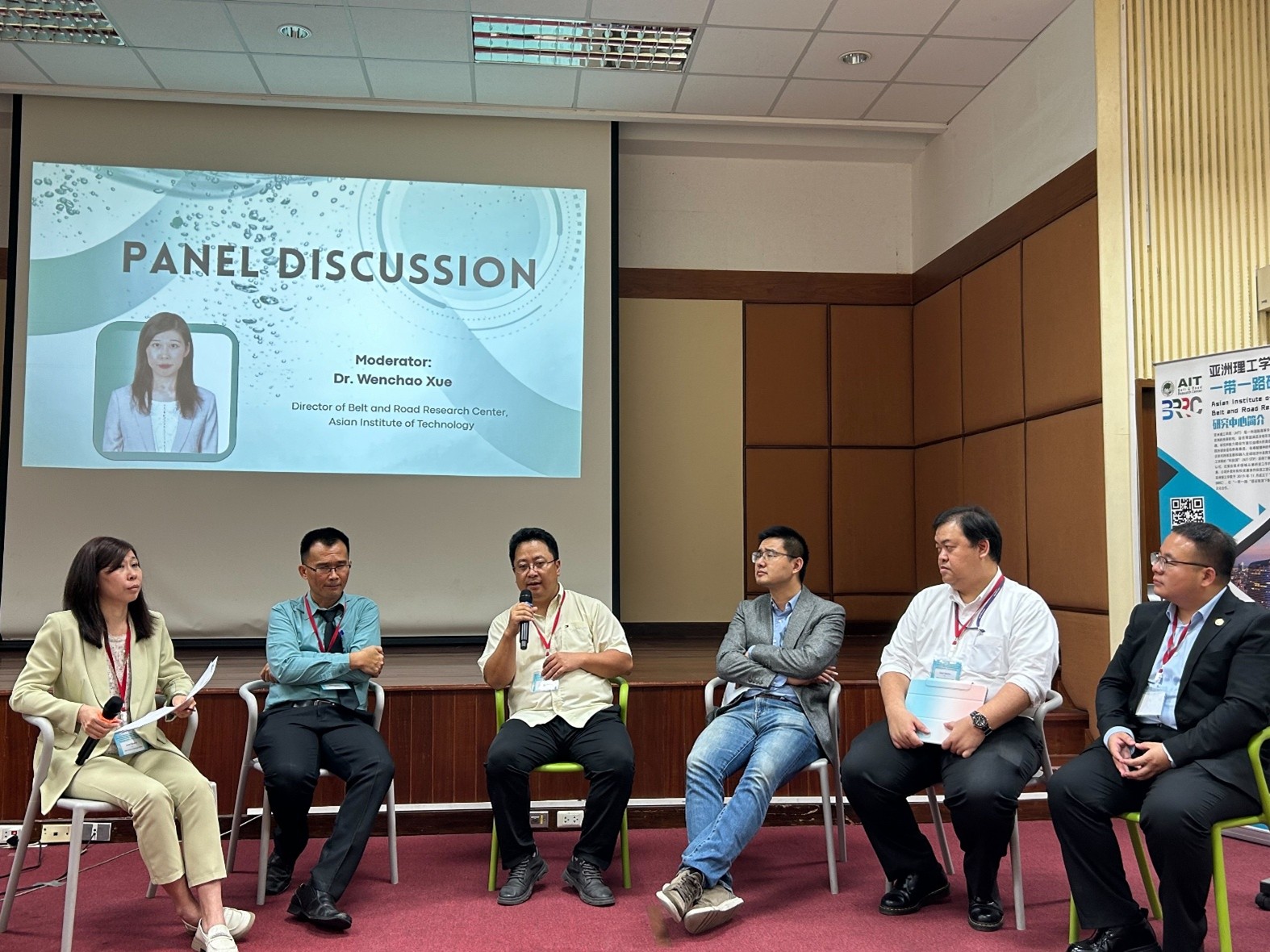
The seminar is the first seminar of the China-Thai Collaboration in Environmental Protection Series on the China-Thailand Environmental Technology and Industry Cooperation Platform that has been launched on October 24th, 2024, in BIETC, Bangkok. The Seminar Series, aiming to create a platform for knowledge exchange and collaboration between experts, policymakers, and stakeholders from both countries, will showcase successful environmental technologies, foster collaborative strategies for addressing various environmental problems of public concern, and enhance the technical capabilities of environmental professionals in Thailand and China. This one on United Strategies for Black-Odorous Urban Rivers concluded with a commitment to further activities under the China-Thailand Environment Technology and Industrial Cooperation Platform, marking a strong step toward regional environmental collaboration.
